241 papers:
 PODS-2015-AlvianoP
PODS-2015-AlvianoP- Default Negation for Non-Guarded Existential Rules (MA, AP), pp. 79–90.
 ICGT-2015-DyckG #induction #invariant
ICGT-2015-DyckG #induction #invariant- Inductive Invariant Checking with Partial Negative Application Conditions (JD, HG), pp. 237–253.
 CHI-2015-CordeiroETBJAF #challenge
CHI-2015-CordeiroETBJAF #challenge- Barriers and Negative Nudges: Exploring Challenges in Food Journaling (FC, DAE, ET, EB, AKJ, GDA, JF), pp. 1159–1162.
 CHI-2015-IvkovicSGS #3d #game studies
CHI-2015-IvkovicSGS #3d #game studies- Quantifying and Mitigating the Negative Effects of Local Latencies on Aiming in 3D Shooter Games (ZI, IS, CG, SWTS), pp. 135–144.
 CHI-2015-WisniewskiJWZXR #internet #online
CHI-2015-WisniewskiJWZXR #internet #online- Resilience Mitigates the Negative Effects of Adolescent Internet Addiction and Online Risk Exposure (PJW, HJ, NW, SZ, HX, MBR, JMC), pp. 4029–4038.
 DUXU-UI-2015-MaginMH #experience #user interface
DUXU-UI-2015-MaginMH #experience #user interface- Measuring Negative User Experience (DPM, AM, SH), pp. 95–106.
 ICML-2015-GeZ #matrix
ICML-2015-GeZ #matrix- Intersecting Faces: Non-negative Matrix Factorization With New Guarantees (RG, JZ), pp. 2295–2303.
 SIGIR-2015-ZhangGKDDCGH #adaptation #feedback #named #query
SIGIR-2015-ZhangGKDDCGH #adaptation #feedback #named #query- adaQAC: Adaptive Query Auto-Completion via Implicit Negative Feedback (AZ, AG, WK, HD, AD, YC, CAG, JH), pp. 143–152.
 SAC-2015-Fournier-VigerZ #mining #named #performance
SAC-2015-Fournier-VigerZ #mining #named #performance- FOSHU: faster on-shelf high utility itemset mining — with or without negative unit profit (PFV, SZ), pp. 857–864.
 SAC-2015-VinagreJG #collaboration #feedback
SAC-2015-VinagreJG #collaboration #feedback- Collaborative filtering with recency-based negative feedback (JV, AMJ, JG), pp. 963–965.
 HT-2014-TangHL #social #social media #trust
HT-2014-TangHL #social #social media #trust- Is distrust the negation of trust?: the value of distrust in social media (JT, XH, HL), pp. 148–157.
 PODS-2014-FinkO #database #probability #query
PODS-2014-FinkO #database #probability #query- A dichotomy for non-repeating queries with negation in probabilistic databases (RF, DO), pp. 144–155.
 ICGT-2014-CorradiniH #canonical
ICGT-2014-CorradiniH #canonical- Canonical Derivations with Negative Application Conditions (AC, RH), pp. 207–221.
 CHI-2014-VanieaRW #case study #experience #how #security
CHI-2014-VanieaRW #case study #experience #how #security- Betrayed by updates: how negative experiences affect future security (KV, EJR, RW), pp. 2671–2674.
 CHI-2014-ViJCS #fault #interactive
CHI-2014-ViJCS #fault #interactive- Error related negativity in observing interactive tasks (CTV, IJ, DC, SS), pp. 3787–3796.
 DUXU-DP-2014-MiddenH #behaviour #energy #feedback #power of
DUXU-DP-2014-MiddenH #behaviour #energy #feedback #power of- The Power of Negative Feedback from an Artificial Agent to Promote Energy Saving Behavior (CJHM, JRCH), pp. 328–338.
 HCI-AIMT-2014-TawatsujiMM #reasoning #towards
HCI-AIMT-2014-TawatsujiMM #reasoning #towards- Proposal for the Model of Occurrence of Negative Response toward Humanlike Agent Based on Brain Function by Qualitative Reasoning (YT, KM, TM), pp. 768–778.
 SCSM-2014-BenteDRA #behaviour #physics
SCSM-2014-BenteDRA #behaviour #physics- Emotional Contagion with Artificial Others. Effects of Culture, Physical Appearance, and Nonverbal Behavior on the Perception of Positive/Negative Affect in Avatars (GB, TD, DR, AAI), pp. 411–420.
 SCSM-2014-FrischlichRR #identification #social
SCSM-2014-FrischlichRR #identification #social- I’d Rather Die Than Be with You: The Effects of Mortality Salience and Negative Social Identity on Identification with a Virtual Group (LF, DR, OR), pp. 440–451.
 CIKM-2014-ChenC #data type #incremental #matrix #named
CIKM-2014-ChenC #data type #incremental #matrix #named- GI-NMF: Group Incremental Non-Negative Matrix Factorization on Data Streams (XC, KSC), pp. 1119–1128.
 CIKM-2014-YeMAG #approach #privacy #visual notation
CIKM-2014-YeMAG #approach #privacy #visual notation- Negative FaceBlurring: A Privacy-by-Design Approach to Visual Lifelogging with Google Glass (TY, BM, RA, CG), pp. 2036–2038.
 ICML-c2-2014-Thomas14a #convergence #named
ICML-c2-2014-Thomas14a #convergence #named- GeNGA: A Generalization of Natural Gradient Ascent with Positive and Negative Convergence Results (PT), pp. 1575–1583.
 ICPR-2014-ChaudhariM #clustering #matrix #semistructured data #symmetry #using
ICPR-2014-ChaudhariM #clustering #matrix #semistructured data #symmetry #using- Average Overlap for Clustering Incomplete Data Using Symmetric Non-negative Matrix Factorization (SC, MNM), pp. 1431–1436.
 ICPR-2014-LablackDBD #approach #detection
ICPR-2014-LablackDBD #approach #detection- A Local Approach for Negative Emotion Detection (AL, TD, IMB, CD), pp. 417–420.
 ICPR-2014-LiuL0L #classification #image #learning
ICPR-2014-LiuL0L #classification #image #learning- Regularized Hierarchical Feature Learning with Non-negative Sparsity and Selectivity for Image Classification (BL, JL, XB, HL), pp. 4293–4298.
 KR-2014-CharalambidisR #higher-order #logic programming
KR-2014-CharalambidisR #higher-order #logic programming- Constructive Negation in Extensional Higher-Order Logic Programming (AC, PR).
 SIGIR-2014-KoopmanZ #comprehension #information retrieval #product line
SIGIR-2014-KoopmanZ #comprehension #information retrieval #product line- Understanding negation and family history to improve clinical information retrieval (BK, GZ), pp. 971–974.
 SAC-2014-LiSSJW #information management
SAC-2014-LiSSJW #information management- Preventing the diffusion of negative information based on local influence tree (YL, YS, JS, BJ, JW), pp. 650–652.
 ICLP-J-2014-CharalambidisER #higher-order #logic programming #semantics
ICLP-J-2014-CharalambidisER #higher-order #logic programming #semantics- Minimum Model Semantics for Extensional Higher-order Logic Programming with Negation (AC, ZÉ, PR), pp. 725–737.
 LICS-CSL-2014-Munch-Maccagnoni #type system
LICS-CSL-2014-Munch-Maccagnoni #type system- Formulae-as-types for an involutive negation (GMM), p. 10.
 SIGMOD-2013-YangWQWL #string #using
SIGMOD-2013-YangWQWL #string #using- Improving regular-expression matching on strings using negative factors (XY, BW, TQ, YW, CL), pp. 361–372.
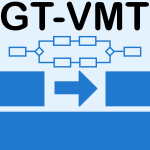 GT-VMT-2013-Corradini #concurrent #semantics
GT-VMT-2013-Corradini #concurrent #semantics- Invited Talk: On the Concurrent Semantics of Transformation Systems with Negative Application Conditions (AC).
 CHI-2013-LaucknerH
CHI-2013-LaucknerH- The presentation of health-related search results and its impact on negative emotional outcomes (CL, GH), pp. 333–342.
 DUXU-PMT-2013-ProvostR #case study #experience #interactive #user interface
DUXU-PMT-2013-ProvostR #case study #experience #interactive #user interface- The Dimensions of Positive and Negative User Experiences with Interactive Products (GP, JMR), pp. 399–408.
 HCI-UC-2013-ArmentanoA #feedback #interactive #navigation #web
HCI-UC-2013-ArmentanoA #feedback #interactive #navigation #web- The Effects of Negative Interaction Feedback in a Web Navigation Assistant (MGA, AAA), pp. 107–116.
 CIKM-2013-ChanLKLBR #graph #matrix #using
CIKM-2013-ChanLKLBR #graph #matrix #using- Discovering latent blockmodels in sparse and noisy graphs using non-negative matrix factorisation (JC, WL, AK, CL, JB, KR), pp. 811–816.
 ICML-c1-2013-KumarSK #algorithm #matrix #performance
ICML-c1-2013-KumarSK #algorithm #matrix #performance- Fast Conical Hull Algorithms for Near-separable Non-negative Matrix Factorization (AK, VS, PK), pp. 231–239.
 RecSys-2013-BelloginPC #collaboration #probability
RecSys-2013-BelloginPC #collaboration #probability- Probabilistic collaborative filtering with negative cross entropy (AB, JP, PC), pp. 387–390.
 SIGIR-2013-ZhangCWY #collaboration #optimisation
SIGIR-2013-ZhangCWY #collaboration #optimisation- Optimizing top-n collaborative filtering via dynamic negative item sampling (WZ, TC, JW, YY), pp. 785–788.
 VMCAI-2013-Pearce #type system
VMCAI-2013-Pearce #type system- Sound and Complete Flow Typing with Unions, Intersections and Negations (DJP), pp. 335–354.
 ASE-2012-ThungLLJRD #debugging #detection #empirical #fault #tool support #what
ASE-2012-ThungLLJRD #debugging #detection #empirical #fault #tool support #what- To what extent could we detect field defects? an empirical study of false negatives in static bug finding tools (FT, L, DL, LJ, FR, PTD), pp. 50–59.
 VLDB-2012-BaranyCO #query
VLDB-2012-BaranyCO #query- Queries with Guarded Negation (VB, BtC, MO), pp. 1328–1339.
 ICGT-2012-KonigS #graph transformation
ICGT-2012-KonigS #graph transformation- Well-Structured Graph Transformation Systems with Negative Application Conditions (BK, JS), pp. 81–95.
 CHI-2012-Pierce #design
CHI-2012-Pierce #design- Undesigning technology: considering the negation of design by design (JP), pp. 957–966.
 CHI-2012-ViS #design #detection #interactive
CHI-2012-ViS #design #detection #interactive- Detecting error-related negativity for interaction design (CV, SS), pp. 493–502.
 CAiSE-2012-BrouckeWBV #generative #process
CAiSE-2012-BrouckeWBV #generative #process- Improved Artificial Negative Event Generation to Enhance Process Event Logs (SKLMvB, JDW, BB, JV), pp. 254–269.
 CIKM-2012-LvZ #generative #query
CIKM-2012-LvZ #generative #query- Query likelihood with negative query generation (YL, CZ), pp. 1799–1803.
 CIKM-2012-YanGLCW #clustering #matrix #using
CIKM-2012-YanGLCW #clustering #matrix #using- Clustering short text using Ncut-weighted non-negative matrix factorization (XY, JG, SL, XC, YW), pp. 2259–2262.
 ICML-2012-MysoreS #markov #modelling #performance
ICML-2012-MysoreS #markov #modelling #performance- Variational Inference in Non-negative Factorial Hidden Markov Models for Efficient Audio Source Separation (GJM, MS), p. 194.
 ICML-2012-ZhouLDC
ICML-2012-ZhouLDC- Lognormal and Gamma Mixed Negative Binomial Regression (MZ, LL, DBD, LC), p. 113.
 ICPR-2012-KirbizG #matrix #music
ICPR-2012-KirbizG #matrix #music- Perceptually weighted Non-negative Matrix Factorization for blind single-channel music source separation (SK, BG), pp. 226–229.
 ICPR-2012-LeiWPMY #robust
ICPR-2012-LeiWPMY #robust- Robust tracking by accounting for hard negatives explicitly (PL, TW, MP, AM, ZY), pp. 2112–2115.
 ICPR-2012-ZhengQ #categorisation #semantics
ICPR-2012-ZhengQ #categorisation #semantics- Non-negative Sparse Semantic Coding for text categorization (WZ, YQ), pp. 409–412.
 KDD-2012-SindhwaniG #distributed #learning #scalability #taxonomy
KDD-2012-SindhwaniG #distributed #learning #scalability #taxonomy- Large-scale distributed non-negative sparse coding and sparse dictionary learning (VS, AG), pp. 489–497.
 KR-2012-CalvaneseOSS #complexity #query
KR-2012-CalvaneseOSS #complexity #query- The Complexity of Explaining Negative Query Answers in DL-Lite (DC, MO, MS, GS).
 MLDM-2012-Ba-KaraitSS #classification #hybrid #optimisation #using
MLDM-2012-Ba-KaraitSS #classification #hybrid #optimisation #using- EEG Signals Classification Using a Hybrid Method Based on Negative Selection and Particle Swarm Optimization (NOSBK, SMS, RS), pp. 427–438.
 SIGIR-2012-LimsopathamMMO #dependence
SIGIR-2012-LimsopathamMMO #dependence- Exploiting term dependence while handling negation in medical search (NL, CM, RM, IO), pp. 1065–1066.
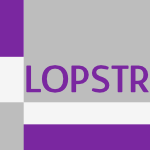 LOPSTR-2012-Seki #logic programming #program transformation #proving #source code
LOPSTR-2012-Seki #logic programming #program transformation #proving #source code- Proving Properties of Co-logic Programs with Negation by Program Transformations (HS), pp. 213–227.
 CSL-2012-Brault-Baron #query
CSL-2012-Brault-Baron #query- A Negative Conjunctive Query is Easy if and only if it is β-Acyclic (JBB), pp. 137–151.
 ICALP-v2-2011-BaranyCS
ICALP-v2-2011-BaranyCS- Guarded Negation (VB, BtC, LS), pp. 356–367.
 ICFP-2011-AhnS #combinator #data type #induction #recursion
ICFP-2011-AhnS #combinator #data type #induction #recursion- A hierarchy of mendler style recursion combinators: taming inductive datatypes with negative occurrences (KYA, TS), pp. 234–246.
 CIKM-2011-DongZCZZLWO #database #mining #named #performance
CIKM-2011-DongZCZZLWO #database #mining #named #performance- e-NSP: efficient negative sequential pattern mining based on identified positive patterns without database rescanning (XD, ZZ, LC, YZ, CZ, JL, WW, YO), pp. 825–830.
 CIKM-2011-KarimzadehganZ #documentation #modelling #query #retrieval
CIKM-2011-KarimzadehganZ #documentation #modelling #query #retrieval- Improving retrieval accuracy of difficult queries through generalizing negative document language models (MK, CZ), pp. 27–36.
 KDD-2011-HsiehD #coordination #matrix #performance
KDD-2011-HsiehD #coordination #matrix #performance- Fast coordinate descent methods with variable selection for non-negative matrix factorization (CJH, ISD), pp. 1064–1072.
 STOC-2010-LeeM #metric
STOC-2010-LeeM #metric- Bilipschitz snowflakes and metrics of negative type (JRL, MM), pp. 621–630.
 ICEIS-HCI-2010-Mital #mobile #privacy
ICEIS-HCI-2010-Mital #mobile #privacy- Consumer Privacy Being Raided and Invaded — The Negative Side of Mobile Advertising (MM), pp. 117–123.
 CIKM-2010-ChiZ #framework #information management #named
CIKM-2010-ChiZ #framework #information management #named- FacetCube: a framework of incorporating prior knowledge into non-negative tensor factorization (YC, SZ), pp. 569–578.
 ICPR-2010-JammalamadakaJKM #matrix #using
ICPR-2010-JammalamadakaJKM #matrix #using- Discriminative Basis Selection Using Non-negative Matrix Factorization (AJ, SJ, SK, BSM), pp. 1533–1536.
 KDD-2010-LiAZ #mining
KDD-2010-LiAZ #mining- Mining positive and negative patterns for relevance feature discovery (YL, AA, NZ), pp. 753–762.
 KDD-2010-LiLZ #algorithm #collaboration #concept #correlation
KDD-2010-LiLZ #algorithm #collaboration #concept #correlation- Negative correlations in collaboration: concepts and algorithms (JL, QL, TZ), pp. 463–472.
 KDIR-2010-BalcazarTZ
KDIR-2010-BalcazarTZ- Filtering Association Rules with Negations on the Basis of Their Confidence Boost (JLB, CT, MEZ), pp. 263–268.
 KR-2010-CiabattoniR #fuzzy #monad #on the
KR-2010-CiabattoniR #fuzzy #monad #on the- On the Classical Content of Monadic G with Involutive Negation and its Application to a Fuzzy Medical Expert System (AC, PR).
 RecSys-2010-SymeonidisTM #network #predict #similarity #social #transitive
RecSys-2010-SymeonidisTM #network #predict #similarity #social #transitive- Transitive node similarity for link prediction in social networks with positive and negative links (PS, ET, YM), pp. 183–190.
 SIGIR-2010-WangDL #comprehension #documentation #matrix #set
SIGIR-2010-WangDL #comprehension #documentation #matrix #set- Feature subset non-negative matrix factorization and its applications to document understanding (DW, CHQD, TL), pp. 805–806.
 DLT-2009-FrougnyL #on the
DLT-2009-FrougnyL #on the- On Negative Bases (CF, ACL), pp. 252–263.
 ICALP-v1-2009-Morizumi
ICALP-v1-2009-Morizumi- Limiting Negations in Formulas (HM), pp. 701–712.
 GT-VMT-2009-EhrigHS #correctness #graph grammar #model transformation
GT-VMT-2009-EhrigHS #correctness #graph grammar #model transformation- Completeness and Correctness of Model Transformations based on Triple Graph Grammars with Negative Application Conditions (HE, FH, CS), pp. 67–84.
 CIKM-2009-AchananuparpYC #using
CIKM-2009-AchananuparpYC #using- Using negative voting to diversify answers in non-factoid question answering (PA, CCY, XC), pp. 1681–1684.
 CIKM-2009-AlgarniLXL #effectiveness #feedback #information management #using
CIKM-2009-AlgarniLXL #effectiveness #feedback #information management #using- An effective model of using negative relevance feedback for information filtering (AA, YL, YX, RYKL), pp. 1605–1608.
 CIKM-2009-JiaYM #analysis #effectiveness #retrieval #sentiment
CIKM-2009-JiaYM #analysis #effectiveness #retrieval #sentiment- The effect of negation on sentiment analysis and retrieval effectiveness (LJ, CTY, WM), pp. 1827–1830.
 LOPSTR-2009-MinG #induction #logic programming
LOPSTR-2009-MinG #induction #logic programming- Coinductive Logic Programming with Negation (RM, GG), pp. 97–112.
 TLCA-2009-Miquel
TLCA-2009-Miquel- Relating Classical Realizability and Negative Translation for Existential Witness Extraction (AM), pp. 188–202.
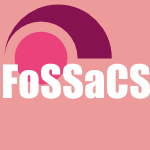 FoSSaCS-2008-RangelKE #bisimulation
FoSSaCS-2008-RangelKE #bisimulation- Deriving Bisimulation Congruences in the Presence of Negative Application Conditions (GR, BK, HE), pp. 413–427.
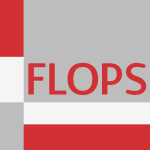 FLOPS-2008-NievaSS #constraints #database #deduction #formal method
FLOPS-2008-NievaSS #constraints #database #deduction #formal method- Formalizing a Constraint Deductive Database Language Based on Hereditary Harrop Formulas with Negation (SN, JSH, FSP), pp. 289–304.
 GT-VMT-2008-ReinPLHP #configuration management
GT-VMT-2008-ReinPLHP #configuration management- Negative Application Conditions for Reconfigurable Place/Transition Systems (AR, UP, LL, KH, JP).
 ICGT-2008-LambersEPO #confluence #graph transformation
ICGT-2008-LambersEPO #confluence #graph transformation- Embedding and Confluence of Graph Transformations with Negative Application Conditions (LL, HE, UP, FO), pp. 162–177.
 ICML-2008-SiggB
ICML-2008-SiggB- Expectation-maximization for sparse and non-negative PCA (CDS, JMB), pp. 960–967.
 ICPR-2008-LiZ #algorithm #fixpoint #matrix #named #performance
ICPR-2008-LiZ #algorithm #fixpoint #matrix #named #performance- FastNMF: A fast monotonic fixed-point non-negative Matrix Factorization algorithm with high ease of use (LL, YJZ), pp. 1–4.
 KDD-2008-SarmaGI #query #using
KDD-2008-SarmaGI #query #using- Bypass rates: reducing query abandonment using negative inferences (ADS, SG, SI), pp. 177–185.
 SIGIR-2008-KeskustaloJPK #higher-order #performance #visualisation
SIGIR-2008-KeskustaloJPK #higher-order #performance #visualisation- Intuition-supporting visualization of user’s performance based on explicit negative higher-order relevance (HK, KJ, AP, JK), pp. 675–682.
 SIGIR-2008-PengL #analysis #evolution #topic #using
SIGIR-2008-PengL #analysis #evolution #topic #using- Author-topic evolution analysis using three-way non-negative Paratucker (WP, TL), pp. 819–820.
 SIGIR-2008-WangFZ #case study #feedback
SIGIR-2008-WangFZ #case study #feedback- A study of methods for negative relevance feedback (XW, HF, CZ), pp. 219–226.
 LOPSTR-2008-Seki #on the #semantics #set
LOPSTR-2008-Seki #on the #semantics #set- On Negative Unfolding in the Answer Set Semantics (HS), pp. 168–184.
 SAC-2008-TierneyJ #ontology #semantics #using
SAC-2008-TierneyJ #ontology #semantics #using- C-SAW---contextual semantic alignment of ontologies: using negative semantic reinforcement (BT, MJ), pp. 2346–2347.
 ICLP-2008-Niemela #programming #set
ICLP-2008-Niemela #programming #set- Answer Set Programming without Unstratified Negation (IN), pp. 88–92.
 ICLP-2008-PuhrerTW #source code
ICLP-2008-PuhrerTW #source code- Elimination of Disjunction and Negation in Answer-Set Programs under Hyperequivalence (JP, HT, SW), pp. 561–575.
 ICLP-2008-TriasNAFH
ICLP-2008-TriasNAFH- Negative Ternary Set-Sharing (ET, JAN, ESA, SF, MVH), pp. 301–316.
 DAC-2007-CzajkowskiB #using
DAC-2007-CzajkowskiB #using- Using Negative Edge Triggered FFs to Reduce Glitching Power in FPGA Circuits (TSC, SDB), pp. 324–329.
 STOC-2007-HoyerLS
STOC-2007-HoyerLS- Negative weights make adversaries stronger (PH, TL, RS), pp. 526–535.
 IFM-2007-CalameIPS #debugging
IFM-2007-CalameIPS #debugging- Bug Hunting with False Negatives (JRC, NI, JvdP, NS), pp. 98–117.
 HIMI-IIE-2007-MurataNSKT #feedback #visual notation
HIMI-IIE-2007-MurataNSKT #feedback #visual notation- Visual Feedback to Reduce the Negative Effects of Message Transfer Delay on Voice Chatting (KM, MN, YS, IK, YT), pp. 95–101.
 ICEIS-AIDSS-2007-MaidantchikSKMBAF #web
ICEIS-AIDSS-2007-MaidantchikSKMBAF #web- NEURALTB Web System: Support to the Smear Negative Pulmonary Tuberculosis Diagnosis (CM, JMdS, ALK, FCdQM, RTVB, PHSA, JBdOeSF), pp. 198–203.
 CIKM-2007-WangFZ #feedback #query #retrieval #using
CIKM-2007-WangFZ #feedback #query #retrieval #using- Improve retrieval accuracy for difficult queries using negative feedback (XW, HF, CZ), pp. 991–994.
 SAC-2007-Lu #implementation #type system
SAC-2007-Lu #implementation #type system- Implementing type-based constructive negation (LL), pp. 1299–1306.
 SAC-2007-RulloCP #categorisation #learning
SAC-2007-RulloCP #categorisation #learning- Learning rules with negation for text categorization (PR, CC, VLP), pp. 409–416.
 DATE-2006-FeyGD #verification
DATE-2006-FeyGD #verification- Avoiding false negatives in formal verification for protocol-driven blocks (GF, DG, RD), pp. 1225–1226.
 ICGT-2006-LambersEO #detection #graph transformation
ICGT-2006-LambersEO #detection #graph transformation- Conflict Detection for Graph Transformation with Negative Application Conditions (LL, HE, FO), pp. 61–76.
 ICEIS-AIDSS-2006-RokachRM #automation #concept #identification
ICEIS-AIDSS-2006-RokachRM #automation #concept #identification- Automatic Identification of Negated Concepts in Narrative Clinical Reports (LR, RR, OM), pp. 257–262.
 ICPR-v3-2006-XueTCZ #algorithm #matrix #recognition
ICPR-v3-2006-XueTCZ #algorithm #matrix #recognition- A Modified Non-negative Matrix Factorization Algorithm for Face Recognition (YX, CST, WSC, WZ), pp. 495–498.
 ICPR-v4-2006-YuanMZL #matrix #recognition #using
ICPR-v4-2006-YuanMZL #matrix #recognition #using- Ear Recognition using Improved Non-Negative Matrix Factorization (LY, ZM, YZ, KL), pp. 501–504.
 SAC-2006-BaralisG #categorisation #word
SAC-2006-BaralisG #categorisation #word- Associative text categorization exploiting negated words (EB, PG), pp. 530–535.
 SAC-2006-OrshanskyWCX #analysis #robust #statistics
SAC-2006-OrshanskyWCX #analysis #robust #statistics- Interval-based robust statistical techniques for non-negative convex functions, with application to timing analysis of computer chips (MO, WSW, MC, GX), pp. 1645–1649.
 ICML-2005-ShashuaH #statistics
ICML-2005-ShashuaH #statistics- Non-negative tensor factorization with applications to statistics and computer vision (AS, TH), pp. 792–799.
 MLDM-2005-SharmaVTV #approach #database #mining #multi #novel
MLDM-2005-SharmaVTV #approach #database #mining #multi #novel- A Novel Approach of Multilevel Positive and Negative Association Rule Mining for Spatial Databases (LKS, OPV, UST, RV), pp. 620–629.
 MLDM-2005-ZhangZ #component #finite #modelling
MLDM-2005-ZhangZ #component #finite #modelling- Finite Mixture Models with Negative Components (BZ, CZ), pp. 31–41.
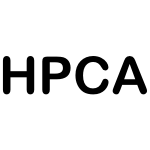 HPCA-2005-JaleelJ #memory management #using
HPCA-2005-JaleelJ #memory management #using- Using Virtual Load/Store Queues (VLSQs) to Reduce the Negative Effects of Reordered Memory Instructions (AJ, BLJ), pp. 191–200.
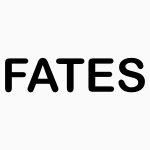 FATES-2005-ZelenovZ #automation #generative #parsing #testing
FATES-2005-ZelenovZ #automation #generative #parsing #testing- Automated Generation of Positive and Negative Tests for Parsers (SVZ, SAZ), pp. 187–202.
 ICLP-2005-SaadP #hybrid #logic programming #probability #source code
ICLP-2005-SaadP #hybrid #logic programming #probability #source code- Hybrid Probabilistic Logic Programs with Non-monotonic Negation (ES, EP), pp. 204–220.
 VLDB-2004-YuCLZ #data type #mining #transaction
VLDB-2004-YuCLZ #data type #mining #transaction- False Positive or False Negative: Mining Frequent Itemsets from High Speed Transactional Data Streams (JXY, ZC, HL, AZ), pp. 204–215.
 FLOPS-2004-Munoz-HernandezMM
FLOPS-2004-Munoz-HernandezMM- Constructive Intensional Negation (SMH, JM, JJMN), pp. 39–54.
 ICPR-v1-2004-BuciuP #matrix #recognition
ICPR-v1-2004-BuciuP #matrix #recognition- Application of non-Negative and Local non Negative Matrix Factorization to Facial Expression Recognition (IB, IP), pp. 288–291.
 ICPR-v1-2004-HoriSNK #detection #multi #realtime #using
ICPR-v1-2004-HoriSNK #detection #multi #realtime #using- A Real-Time Multi Face Detection Technique Using Positive-Negative Lines-of-Face Template (YH, KS, YN, TK), pp. 765–768.
 ICPR-v3-2004-LenzB #recognition
ICPR-v3-2004-LenzB #recognition- Recognition of Non-Negative Patterns (RL, THB), pp. 498–501.
 ICPR-v4-2004-FrancoLM #approach #feedback
ICPR-v4-2004-FrancoLM #approach #feedback- A New Approach for Relevance Feedback Through Positive and Negative Samples (AF, AL, DM), pp. 905–908.
 LOPSTR-2004-SatoK #finite
LOPSTR-2004-SatoK #finite- Negation Elimination for Finite PCFGs (TS, YK), pp. 117–132.
 SAC-2004-AlvezLO #bottom-up
SAC-2004-AlvezLO #bottom-up- Constructive negation by bottom-up computation of literal answers (JÁ, PL, FO), pp. 1468–1475.
 CSL-2004-AvelloneFFM #calculus #implementation #logic #performance
CSL-2004-AvelloneFFM #calculus #implementation #logic #performance- A Space Efficient Implementation of a Tableau Calculus for a Logic with a Constructive Negation (AA, CF, GF, UM), pp. 488–502.
 ICLP-2004-Munoz-HernandezM #implementation
ICLP-2004-Munoz-HernandezM #implementation- Implementation Results in Classical Constructive Negation (SMH, JJMN), pp. 284–298.
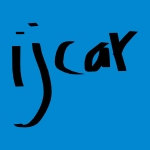 IJCAR-2004-LutzW #source code
IJCAR-2004-LutzW #source code- PDL with Negation of Atomic Programs (CL, DW), pp. 259–273.
 ICDAR-2003-HuoF #modelling #performance #using
ICDAR-2003-HuoF #modelling #performance #using- Improving Chinese/English OCR Performance by Using MCE-based Character-Pair Modeling and Negative Training (QH, ZDF), pp. 364–368.
 VLDB-2003-Ramanan #bisimulation #query #simulation #xml
VLDB-2003-Ramanan #bisimulation #query #simulation #xml- Covering Indexes for XML Queries: Bisimulation — Simulation = Negation (PR), pp. 165–176.
 SIGIR-2003-XuLG #clustering #documentation #matrix
SIGIR-2003-XuLG #clustering #documentation #matrix- Document clustering based on non-negative matrix factorization (WX, XL, YG), pp. 267–273.
 ICLP-2003-Munoz-HernandezM #implementation
ICLP-2003-Munoz-HernandezM #implementation- A Real Implementation for Constructive Negation (SMH, JJMN), pp. 496–497.
 ICLP-2003-NieuwenborghV #order
ICLP-2003-NieuwenborghV #order- Order and Negation as Failure (DVN, DV), pp. 194–208.
 ICML-2002-WuZZ #mining
ICML-2002-WuZZ #mining- Mining Both Positive and Negative Association Rules (XW, CZ, SZ), pp. 658–665.
 ICPR-v2-2002-GuillametSV #classification #image #matrix
ICPR-v2-2002-GuillametSV #classification #image #matrix- Analyzing Non-Negative Matrix Factorization for Image Classification (DG, BS, JV), pp. 116–119.
 ICPR-v2-2002-GuillametV #matrix #metric #using
ICPR-v2-2002-GuillametV #matrix #metric #using- Determining a Suitable Metric when Using Non-Negative Matrix Factorization (DG, JV), pp. 128–131.
 ICPR-v2-2002-KherfiZB #feedback #image #learning #retrieval
ICPR-v2-2002-KherfiZB #feedback #image #learning #retrieval- Learning from Negative Example in Relevance Feedback for Content-Based Image Retrieval (MLK, DZ, AB), pp. 933–936.
 FSE-2002-UchitelKM #elicitation
FSE-2002-UchitelKM #elicitation- Negative scenarios for implied scenario elicitation (SU, JK, JM), pp. 109–118.
 ICLP-2002-Cabalar #semantics
ICLP-2002-Cabalar #semantics- A Rewriting Method for Well-Founded Semantics with Explicit Negation (PC), pp. 378–392.
 DATE-2001-StaverenV #order
DATE-2001-StaverenV #order- Order determination for frequency compensation of negative-feedback systems (AvS, CJMV), p. 815.
 ICDAR-2001-BarakatB #classification #geometry
ICDAR-2001-BarakatB #classification #geometry- Training with Positive and Negative Data Samples: Effects on a Classifier for Hand-Drawn Geometric Shapes (HB, DB), pp. 1017–1021.
 PODS-2001-CohenNS #query
PODS-2001-CohenNS #query- Equivalences among Aggregate Queries with Negation (SC, WN, YS).
 STOC-2001-JerrumSV #algorithm #approximate #matrix #polynomial
STOC-2001-JerrumSV #algorithm #approximate #matrix #polynomial- A polynomial-time approximation algorithm for the permanent of a matrix with non-negative entries (MJ, AS, EV), pp. 712–721.
 CIKM-2001-ConradD #automation #recognition
CIKM-2001-ConradD #automation #recognition- Automatic Recognition of Distinguishing Negative Indirect History Language in Judicial Opinions (JGC, DPD), pp. 287–294.
 CAV-2001-MoondanosSHK #divide and conquer #equivalence #logic #named #verification
CAV-2001-MoondanosSHK #divide and conquer #equivalence #logic #named #verification- CLEVER: Divide and Conquer Combinational Logic Equivalence VERification with False Negative Elimination (JM, CJHS, ZH, DK), pp. 131–143.
 ICLP-2001-KaneiwaT #order
ICLP-2001-KaneiwaT #order- An Order-Sorted Resolution with Implicitly Negative Sorts (KK, ST), pp. 300–314.
 ICALP-2000-Pichler #equation
ICALP-2000-Pichler #equation- Negation Elimination from Simple Equational Formulae (RP), pp. 612–623.
 ICPR-v1-2000-MullerMMPS #feedback #image #retrieval
ICPR-v1-2000-MullerMMPS #feedback #image #retrieval- Strategies for Positive and Negative Relevance Feedback in Image Retrieval (HM, WM, SMM, TP, DS), pp. 5043–5042.
 ICPR-v4-2000-AssfalgBP #image #retrieval
ICPR-v4-2000-AssfalgBP #image #retrieval- Image Retrieval by Positive and Negative Examples (JA, ADB, PP), pp. 4267–4270.
 PADL-2000-Moreno-NavarroM #compilation #how #prolog
PADL-2000-Moreno-NavarroM #compilation #how #prolog- How to Incorporate Negation in a Prolog Compiler (JJMN, SMH), pp. 124–140.
 CSL-2000-Momigliano #framework #logic
CSL-2000-Momigliano #framework #logic- Elimination of Negation in a Logical Framework (AM), pp. 411–426.
 CSL-2000-Parigot #on the
CSL-2000-Parigot #on the- On the Computational Interpretation of Negation (MP), pp. 472–484.
 DATE-1999-VerhoevenS #feedback
DATE-1999-VerhoevenS #feedback- Systematic Biasing of Negative Feedback Amplifiers (CJMV, AvS), pp. 318–322.
 FASE-1999-FokkinkV #legacy #term rewriting
FASE-1999-FokkinkV #legacy #term rewriting- Conservative Extension in Positive/Negative Conditional Term Rewriting with Applications to Software Renovation Factories (WF, CV), pp. 98–113.
 ICPR-1998-SofferS #similarity #using
ICPR-1998-SofferS #similarity #using- Using negative shape features for logo similarity matching (AS, HS), pp. 571–573.
 ALP-PLILP-1998-ClearyL #using
ALP-PLILP-1998-ClearyL #using- Constructive Negation Using Typed Existence Properties (JGC, LL), pp. 411–426.
 JICSLP-1998-GrecoZ #algorithm #datalog
JICSLP-1998-GrecoZ #algorithm #datalog- Greedy Algorithms in Datalog with Choice and Negation (SG, CZ), pp. 294–309.
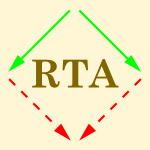 RTA-1998-Fuchs #information management #proving
RTA-1998-Fuchs #information management #proving- Coupling Saturation-Based Provers by Exchanging Positive/Negative Information (DF), pp. 317–331.
 HCI-CC-1997-GiladH #design
HCI-CC-1997-GiladH #design- Keyboard Operations in a Negative Slope Design (IG, SH), pp. 611–614.
 SAC-1997-ShumskyWME #constraints #finite #first-order #generative #heuristic
SAC-1997-ShumskyWME #constraints #finite #first-order #generative #heuristic- Direct finite first-order model generation with negative constraint propagation heuristic (OS, RWW, WM, FE), pp. 25–29.
 ICLP-1997-Petukhin #embedded
ICLP-1997-Petukhin #embedded- Embedded Implications as a Generalization of Negation as Failure (VP), p. 420.
 ICALP-1996-Glabbeek #specification
ICALP-1996-Glabbeek #specification- The Meaning of Negative Premises in Transition System Specifications II (RJvG), pp. 502–513.
 ICML-1996-JappyNG #horn clause #learning #robust #source code
ICML-1996-JappyNG #horn clause #learning #robust #source code- Negative Robust Learning Results from Horn Clause Programs (PJ, RN, OG), pp. 258–265.
 ALP-1996-PierroD #on the
ALP-1996-PierroD #on the- On Negation As Instantiation (ADP, WD), pp. 32–46.
 SAC-1996-WassermanYS #logic programming #metric #on the
SAC-1996-WassermanYS #logic programming #metric #on the- On quantitative measurement of negation in logic programming (HCW, KY, ZS), pp. 58–62.
 STOC-1995-BealsNT #complexity
STOC-1995-BealsNT #complexity- More on the complexity of negation-limited circuits (RB, TN, KT), pp. 585–595.
 ICLP-1995-Lifschitz
ICLP-1995-Lifschitz- SLDNF, Constructive Negation and Grounding (VL), pp. 581–595.
 ILPS-1995-DimopoulosK #logic programming
ILPS-1995-DimopoulosK #logic programming- Logic Programming without Negation as Failure (YD, ACK), pp. 369–383.
 RTA-1995-AnantharamanR #logic programming #source code
RTA-1995-AnantharamanR #logic programming #source code- A Rewrite Mechanism for Logic Programs with Negation (SA, GR), pp. 163–178.
 TLCA-1995-BerardiBC #axiom
TLCA-1995-BerardiBC #axiom- A realization of the negative interpretation of the Axiom of Choice (SB, MB, TC), pp. 47–62.
 STOC-1994-TanakaN #complexity #network #on the
STOC-1994-TanakaN #complexity #network #on the- On the complexity of negation-limited Boolean networks (KT, TN), pp. 38–47.
 KR-1994-InoueS #on the
KR-1994-InoueS #on the- On Positive Occurrences of Negation as Failure (KI, CS), pp. 293–304.
 ICLP-1994-BossiFM #bottom-up #semantics
ICLP-1994-BossiFM #bottom-up #semantics- A Bottom-up Semantics for Constructive Negation (AB, MF, MCM), pp. 520–534.
 ICLP-1994-Moreno-Navarro
ICLP-1994-Moreno-Navarro- Default Rules: An Extension of Constructive Negation for Narrowing-based Languages (JJMN), pp. 535–549.
 ILPS-1994-AlferesDP #named #source code #top-down
ILPS-1994-AlferesDP #named #source code #top-down- SLX — A Top-down Derivation Procedure for Programs with Explicit Negation (JJA, CVD, LMP), pp. 424–438.
 ILPS-1994-Malfon #logic programming #semantics #source code #validation
ILPS-1994-Malfon #logic programming #semantics #source code #validation- Characterization of Some Semantics for Logic Programs with Negation and Applications to Program Validation (BM), pp. 91–105.
 LICS-1994-CharatonikP #constraints #set #similarity
LICS-1994-CharatonikP #constraints #set #similarity- Negative Set Constraints with Equality (WC, LP), pp. 128–136.
 LICS-1994-Stefansson #constraints #set
LICS-1994-Stefansson #constraints #set- Systems of Set Constraints with Negative Constraints are NEXPTIME-Complete (KS), pp. 137–141.
 DAC-1993-LewisP
DAC-1993-LewisP- A Negative Reinforcement Method for PGA Routing (FDL, WCCP), pp. 601–605.
 PODS-1993-Schaerf #database
PODS-1993-Schaerf #database- Negation and Minimality in Non-Horn Databases (MS), pp. 147–157.
 CSL-1993-Gomolko #consistency #logic #nondeterminism #prolog
CSL-1993-Gomolko #consistency #logic #nondeterminism #prolog- Negation as Inconsistency in PROLOG via Intuitionistic Logic (AG), pp. 128–138.
 ICLP-1993-Dung93a #logic programming #semantics
ICLP-1993-Dung93a #logic programming #semantics- An Argumentation Semantics for Logic Programming with Explicit Negation (PMD), pp. 616–630.
 ICLP-1993-SakamaI #logic programming #source code
ICLP-1993-SakamaI #logic programming #source code- Negation in Disjunctive Logic Programs (CS, KI), pp. 703–719.
 ILPS-1993-Andrews #logic #prolog #semantics
ILPS-1993-Andrews #logic #prolog #semantics- A Logical Semantics for Depth-First Prolog with Ground Negation (JHA), pp. 220–234.
 ILPS-1993-MoraPRF #equation #prototype #type system
ILPS-1993-MoraPRF #equation #prototype #type system- A Prototype System for Equational Constructive Negation (AM, JP, MJR, MF), p. 638.
 ILPS-1993-OsorioJ #set
ILPS-1993-OsorioJ #set- Subset Assertions and Negation As Failure (MO, BJ), p. 637.
 RTA-1993-Fernandez #problem #satisfiability
RTA-1993-Fernandez #problem #satisfiability- AC Complement Problems: Satisfiability and Negation Elimination (MF), pp. 358–373.
 RTA-1993-Tajine #decidability #equation
RTA-1993-Tajine #decidability #equation- The Negation Elimination from Syntactic Equational Formula is Decidable (MT), pp. 316–327.
 KR-1992-Iwanska #natural language #representation #semantics
KR-1992-Iwanska #natural language #representation #semantics- A General Semantic Model of Negation in Natural Language: Representation and Inference (LI), pp. 357–368.
 SEKE-1992-ShimuraLM #logic programming #petri net #semantics #source code
SEKE-1992-ShimuraLM #logic programming #petri net #semantics #source code- A Petri Net Semantics for Logic Programs with Negation (TS, JL, TM), pp. 292–299.
 CADE-1992-InoueKH #generative #proving #theorem proving
CADE-1992-InoueKH #generative #proving #theorem proving- Embedding Negation as Failure into a Model Generation Theorem Prover (KI, MK, RH), pp. 400–415.
 CSL-1992-Stark #logic programming #source code
CSL-1992-Stark #logic programming #source code- Negation-Complete Logic Programs (RFS), pp. 403–409.
 JICSLP-1992-AlferesP #logic programming #on the #semantics
JICSLP-1992-AlferesP #logic programming #on the #semantics- On Logic Program Semantics with Two Kinds of Negation (JJA, LMP), pp. 574–588.
 JICSLP-1992-GiordanoO #logic programming
JICSLP-1992-GiordanoO #logic programming- Negation as Failure in Intuitionistic Logic Programming (LG, NO), pp. 431–445.
 PODS-1991-Ross91a #on the
PODS-1991-Ross91a #on the- On Negation in HiLog (KAR), pp. 206–215.
 ICALP-1991-BolG #specification
ICALP-1991-BolG #specification- The Meaning of Negative Premises in Transition System Specifications (RNB, JFG), pp. 481–494.
 KR-1991-Geffner
KR-1991-Geffner- Beyond Negation as Failure (HG), pp. 218–229.
 ICLP-1991-Dung #abduction #logic programming
ICLP-1991-Dung #abduction #logic programming- Negations as Hypotheses: An Abductive Foundation for Logic Programming (PMD), pp. 3–17.
 ICLP-1991-PierroMP #logic programming
ICLP-1991-PierroMP #logic programming- Negation as Instantitation: A New Rule for the Treatment of Negation in Logic Programming (ADP, MM, CP), pp. 32–45.
 ICLP-1991-Turi #logic programming #source code
ICLP-1991-Turi #logic programming #source code- Extending S-Models to Logic Programs with Negation (DT), pp. 397–411.
 LICS-1991-Stuckey #constraints #logic programming
LICS-1991-Stuckey #constraints #logic programming- Constructive Negation for Constraint Logic Programming (PJS), pp. 328–339.
 PODS-1990-Ross #composition #datalog #set #source code
PODS-1990-Ross #composition #datalog #set #source code- Modular Stratification and Magic Sets for DATALOG Programs with Negation (KAR), pp. 161–171.
 PODS-1990-SaccaZ #logic programming #modelling #nondeterminism #source code
PODS-1990-SaccaZ #logic programming #modelling #nondeterminism #source code- Stable Models and Non-Determinism in Logic Programs with Negation (DS, CZ), pp. 205–217.
 ALP-1990-KanchanasutS #logic programming #source code
ALP-1990-KanchanasutS #logic programming #source code- Eliminating Negation from Normal Logic Programs (KK, PJS), pp. 217–231.
 CLP-1990-GelfondL90 #logic programming #source code
CLP-1990-GelfondL90 #logic programming #source code- Logic Programs with Classical Negation (MG, VL), pp. 579–597.
 NACLP-1990-BonnerM #logic programming
NACLP-1990-BonnerM #logic programming- Adding Negation-as-Failure to Intuitionistic Logic Programming (AJB, LTM), pp. 681–703.
 NACLP-1990-GrecoS #logic programming #source code
NACLP-1990-GrecoS #logic programming #source code- Negative Logic Programs (SG, DS), pp. 480–497.
 NACLP-1990-Lobo #logic programming #on the #source code
NACLP-1990-Lobo #logic programming #on the #source code- On Constructive Negation for Disjunctive Logic Programs (JL), pp. 704–718.
 PODS-1989-Bonner #datalog #linear #recursion
PODS-1989-Bonner #datalog #linear #recursion- Hypothetical Datalog: Negation and Linear Recursion (AJB), pp. 286–300.
 PODS-1989-Gelder #fixpoint #logic programming #source code
PODS-1989-Gelder #fixpoint #logic programming #source code- The Alternating Fixpoint of Logic Programs with Negation (AVG), pp. 1–10.
 PODS-1989-Ross #logic programming #semantics #source code
PODS-1989-Ross #logic programming #semantics #source code- A Procedural Semantics for Well Founded Negation in Logic Programs (KAR), pp. 22–33.
 LICS-1989-Fitting
LICS-1989-Fitting- Negation As Refutation (MF), pp. 63–70.
 NACLP-1989-Chan
NACLP-1989-Chan- An Extension of Constructive Negation and its Application in Coroutining (DC), pp. 477–493.
 NACLP-1989-Harland
NACLP-1989-Harland- A Kripke-like Model for Negation as Failure (JH), pp. 626–642.
 NACLP-1989-MaluszynskiN
NACLP-1989-MaluszynskiN- Fail Substitutions for Negation as Failure (JM, TN), pp. 461–476.
 NACLP-1989-Przymusinski #logic programming #on the
NACLP-1989-Przymusinski #logic programming #on the- On Constructive Negation in Logic Programming (TCP).
 NACLP-1989-YouL #logic programming
NACLP-1989-YouL #logic programming- Supported Circumscription and Its Relation to Logic Programming with Negation (JHY, LL), pp. 291–309.
 RTA-1989-MohanS #logic
RTA-1989-MohanS #logic- Negation with Logical Variables in Conditional Rewriting (CKM, MKS), pp. 292–310.
 PODS-1988-KolaitisP #fixpoint #question #why
PODS-1988-KolaitisP #fixpoint #question #why- Why Not Negation by Fixpoint? (PGK, CHP), pp. 231–239.
 SIGMOD-1988-AbiteboulH #datalog
SIGMOD-1988-AbiteboulH #datalog- Data Functions, Datalog and Negation (Extended Abstract) (SA, RH), pp. 143–153.
 STOC-1988-GoldbergT #low cost
STOC-1988-GoldbergT #low cost- Finding Minimum-Cost Circulations by Canceling Negative Cycles (AVG, RET), pp. 388–397.
 JICSCP-1988-BruffaertsH88 #prolog #proving
JICSCP-1988-BruffaertsH88 #prolog #proving- Proof Trees for Negation as Failure: Yet Another Prolog Meta-Interpreter (AB, EH), pp. 343–358.
 JICSCP-1988-Chan88 #database
JICSCP-1988-Chan88 #database- Constructive Negation Based on the Completed Database (DC), pp. 111–125.
 JICSCP-1988-FooRTW88 #deduction
JICSCP-1988-FooRTW88 #deduction- Deduced Relevant Types and Constructive Negation (NYF, ASR, AT, AW), pp. 126–139.
 PODS-1987-BeeriNRST #database #logic #set
PODS-1987-BeeriNRST #database #logic #set- Sets and Negation in a Logic Database Language (LDL1) (CB, SAN, RR, OS, ST), pp. 21–37.
 SIGIR-1987-FuhrM #probability
SIGIR-1987-FuhrM #probability- Probabilistic Search Term Weighting-Some Negative Results (NF, PM), pp. 13–18.
 ICLP-1987-Kunen87 #set
ICLP-1987-Kunen87 #set- Answer Sets and Negation-as-Failure (KK), pp. 219–228.
 SLP-1987-Wallace87 #constraints #database #deduction #implementation #performance
SLP-1987-Wallace87 #constraints #database #deduction #implementation #performance- Negation by Constraints: A Sound and Efficient Implementation of Negation in Deductive Databases (MW), pp. 253–263.
 PODS-1986-Naqvi #first-order #query
PODS-1986-Naqvi #first-order #query- Negation as Failure for First-Order Queries (SAN), pp. 114–122.
 ICALP-1986-SpirakisT #algorithm #performance
ICALP-1986-SpirakisT #algorithm #performance- A Very Fast, Practical Algorithm for Finding a Negative Cycle in a Digraph (PGS, AKT), pp. 397–406.
 CADE-1986-WosM
CADE-1986-WosM- Negative Paramodulation (LW, WM), pp. 229–239.
 ICLP-1986-Naish86 #prolog #quantifier
ICLP-1986-Naish86 #prolog #quantifier- Negation and Quantifiers in NU-Prolog (LN), pp. 624–634.
 ICLP-1986-PooleG86 #prolog
ICLP-1986-PooleG86 #prolog- Gracefully adding negation and disjunction to Prolog (DP, RG), pp. 635–641.
 SLP-1986-Gelder86 #logic programming #source code #using
SLP-1986-Gelder86 #logic programming #source code #using- Negation as Failure Using Tight Derivations for General Logic Programs (AVG), pp. 127–138.
 DAC-1984-WieclawskiP #compilation #layout #network #optimisation
DAC-1984-WieclawskiP #compilation #layout #network #optimisation- Optimization of negative gate networks realized in weinberger-LIKF layout in a boolean level silicon compiler (AW, MAP), pp. 703–704.
 SLP-1984-Khabaza84 #parallel
SLP-1984-Khabaza84 #parallel- Negation as Failure and Parallelism (TK), pp. 70–75.
 ILPC-1982-Blair82
ILPC-1982-Blair82- The Undecidability of Two Completeness Notions for the “Negation as Failure” (HAB), pp. 164–168.
 ILPC-1982-Sato82 #prolog #semantics #source code
ILPC-1982-Sato82 #prolog #semantics #source code- Negation and Semantics of Prolog Programs (TS), pp. 169–174.
 STOC-1979-Valiant
STOC-1979-Valiant- Negation Can Be Exponentially Powerful (LGV), pp. 189–196.
 STOC-1974-Pratt #matrix #multi #power of
STOC-1974-Pratt #matrix #multi #power of- The Power of Negative Thinking in Multiplying Boolean Matrices (VRP), pp. 80–83.
 PODS-2015-AlvianoP
PODS-2015-AlvianoP ICGT-2015-DyckG #induction #invariant
ICGT-2015-DyckG #induction #invariant CHI-2015-CordeiroETBJAF #challenge
CHI-2015-CordeiroETBJAF #challenge CHI-2015-IvkovicSGS #3d #game studies
CHI-2015-IvkovicSGS #3d #game studies CHI-2015-WisniewskiJWZXR #internet #online
CHI-2015-WisniewskiJWZXR #internet #online DUXU-UI-2015-MaginMH #experience #user interface
DUXU-UI-2015-MaginMH #experience #user interface ICML-2015-GeZ #matrix
ICML-2015-GeZ #matrix SIGIR-2015-ZhangGKDDCGH #adaptation #feedback #named #query
SIGIR-2015-ZhangGKDDCGH #adaptation #feedback #named #query SAC-2015-Fournier-VigerZ #mining #named #performance
SAC-2015-Fournier-VigerZ #mining #named #performance SAC-2015-VinagreJG #collaboration #feedback
SAC-2015-VinagreJG #collaboration #feedback HT-2014-TangHL #social #social media #trust
HT-2014-TangHL #social #social media #trust PODS-2014-FinkO #database #probability #query
PODS-2014-FinkO #database #probability #query ICGT-2014-CorradiniH #canonical
ICGT-2014-CorradiniH #canonical CHI-2014-VanieaRW #case study #experience #how #security
CHI-2014-VanieaRW #case study #experience #how #security CHI-2014-ViJCS #fault #interactive
CHI-2014-ViJCS #fault #interactive DUXU-DP-2014-MiddenH #behaviour #energy #feedback #power of
DUXU-DP-2014-MiddenH #behaviour #energy #feedback #power of HCI-AIMT-2014-TawatsujiMM #reasoning #towards
HCI-AIMT-2014-TawatsujiMM #reasoning #towards SCSM-2014-BenteDRA #behaviour #physics
SCSM-2014-BenteDRA #behaviour #physics SCSM-2014-FrischlichRR #identification #social
SCSM-2014-FrischlichRR #identification #social CIKM-2014-ChenC #data type #incremental #matrix #named
CIKM-2014-ChenC #data type #incremental #matrix #named CIKM-2014-YeMAG #approach #privacy #visual notation
CIKM-2014-YeMAG #approach #privacy #visual notation ICML-c2-2014-Thomas14a #convergence #named
ICML-c2-2014-Thomas14a #convergence #named ICPR-2014-ChaudhariM #clustering #matrix #semistructured data #symmetry #using
ICPR-2014-ChaudhariM #clustering #matrix #semistructured data #symmetry #using ICPR-2014-LablackDBD #approach #detection
ICPR-2014-LablackDBD #approach #detection ICPR-2014-LiuL0L #classification #image #learning
ICPR-2014-LiuL0L #classification #image #learning KR-2014-CharalambidisR #higher-order #logic programming
KR-2014-CharalambidisR #higher-order #logic programming SIGIR-2014-KoopmanZ #comprehension #information retrieval #product line
SIGIR-2014-KoopmanZ #comprehension #information retrieval #product line SAC-2014-LiSSJW #information management
SAC-2014-LiSSJW #information management ICLP-J-2014-CharalambidisER #higher-order #logic programming #semantics
ICLP-J-2014-CharalambidisER #higher-order #logic programming #semantics LICS-CSL-2014-Munch-Maccagnoni #type system
LICS-CSL-2014-Munch-Maccagnoni #type system SIGMOD-2013-YangWQWL #string #using
SIGMOD-2013-YangWQWL #string #using GT-VMT-2013-Corradini #concurrent #semantics
GT-VMT-2013-Corradini #concurrent #semantics CHI-2013-LaucknerH
CHI-2013-LaucknerH DUXU-PMT-2013-ProvostR #case study #experience #interactive #user interface
DUXU-PMT-2013-ProvostR #case study #experience #interactive #user interface HCI-UC-2013-ArmentanoA #feedback #interactive #navigation #web
HCI-UC-2013-ArmentanoA #feedback #interactive #navigation #web CIKM-2013-ChanLKLBR #graph #matrix #using
CIKM-2013-ChanLKLBR #graph #matrix #using ICML-c1-2013-KumarSK #algorithm #matrix #performance
ICML-c1-2013-KumarSK #algorithm #matrix #performance RecSys-2013-BelloginPC #collaboration #probability
RecSys-2013-BelloginPC #collaboration #probability SIGIR-2013-ZhangCWY #collaboration #optimisation
SIGIR-2013-ZhangCWY #collaboration #optimisation VMCAI-2013-Pearce #type system
VMCAI-2013-Pearce #type system ASE-2012-ThungLLJRD #debugging #detection #empirical #fault #tool support #what
ASE-2012-ThungLLJRD #debugging #detection #empirical #fault #tool support #what VLDB-2012-BaranyCO #query
VLDB-2012-BaranyCO #query ICGT-2012-KonigS #graph transformation
ICGT-2012-KonigS #graph transformation CHI-2012-Pierce #design
CHI-2012-Pierce #design CHI-2012-ViS #design #detection #interactive
CHI-2012-ViS #design #detection #interactive CAiSE-2012-BrouckeWBV #generative #process
CAiSE-2012-BrouckeWBV #generative #process CIKM-2012-LvZ #generative #query
CIKM-2012-LvZ #generative #query CIKM-2012-YanGLCW #clustering #matrix #using
CIKM-2012-YanGLCW #clustering #matrix #using ICML-2012-MysoreS #markov #modelling #performance
ICML-2012-MysoreS #markov #modelling #performance ICML-2012-ZhouLDC
ICML-2012-ZhouLDC ICPR-2012-KirbizG #matrix #music
ICPR-2012-KirbizG #matrix #music ICPR-2012-LeiWPMY #robust
ICPR-2012-LeiWPMY #robust ICPR-2012-ZhengQ #categorisation #semantics
ICPR-2012-ZhengQ #categorisation #semantics KDD-2012-SindhwaniG #distributed #learning #scalability #taxonomy
KDD-2012-SindhwaniG #distributed #learning #scalability #taxonomy KR-2012-CalvaneseOSS #complexity #query
KR-2012-CalvaneseOSS #complexity #query MLDM-2012-Ba-KaraitSS #classification #hybrid #optimisation #using
MLDM-2012-Ba-KaraitSS #classification #hybrid #optimisation #using SIGIR-2012-LimsopathamMMO #dependence
SIGIR-2012-LimsopathamMMO #dependence LOPSTR-2012-Seki #logic programming #program transformation #proving #source code
LOPSTR-2012-Seki #logic programming #program transformation #proving #source code CSL-2012-Brault-Baron #query
CSL-2012-Brault-Baron #query ICALP-v2-2011-BaranyCS
ICALP-v2-2011-BaranyCS ICFP-2011-AhnS #combinator #data type #induction #recursion
ICFP-2011-AhnS #combinator #data type #induction #recursion CIKM-2011-DongZCZZLWO #database #mining #named #performance
CIKM-2011-DongZCZZLWO #database #mining #named #performance CIKM-2011-KarimzadehganZ #documentation #modelling #query #retrieval
CIKM-2011-KarimzadehganZ #documentation #modelling #query #retrieval KDD-2011-HsiehD #coordination #matrix #performance
KDD-2011-HsiehD #coordination #matrix #performance STOC-2010-LeeM #metric
STOC-2010-LeeM #metric ICEIS-HCI-2010-Mital #mobile #privacy
ICEIS-HCI-2010-Mital #mobile #privacy CIKM-2010-ChiZ #framework #information management #named
CIKM-2010-ChiZ #framework #information management #named ICPR-2010-JammalamadakaJKM #matrix #using
ICPR-2010-JammalamadakaJKM #matrix #using KDD-2010-LiAZ #mining
KDD-2010-LiAZ #mining KDD-2010-LiLZ #algorithm #collaboration #concept #correlation
KDD-2010-LiLZ #algorithm #collaboration #concept #correlation KDIR-2010-BalcazarTZ
KDIR-2010-BalcazarTZ KR-2010-CiabattoniR #fuzzy #monad #on the
KR-2010-CiabattoniR #fuzzy #monad #on the RecSys-2010-SymeonidisTM #network #predict #similarity #social #transitive
RecSys-2010-SymeonidisTM #network #predict #similarity #social #transitive SIGIR-2010-WangDL #comprehension #documentation #matrix #set
SIGIR-2010-WangDL #comprehension #documentation #matrix #set DLT-2009-FrougnyL #on the
DLT-2009-FrougnyL #on the ICALP-v1-2009-Morizumi
ICALP-v1-2009-Morizumi GT-VMT-2009-EhrigHS #correctness #graph grammar #model transformation
GT-VMT-2009-EhrigHS #correctness #graph grammar #model transformation CIKM-2009-AchananuparpYC #using
CIKM-2009-AchananuparpYC #using CIKM-2009-AlgarniLXL #effectiveness #feedback #information management #using
CIKM-2009-AlgarniLXL #effectiveness #feedback #information management #using CIKM-2009-JiaYM #analysis #effectiveness #retrieval #sentiment
CIKM-2009-JiaYM #analysis #effectiveness #retrieval #sentiment LOPSTR-2009-MinG #induction #logic programming
LOPSTR-2009-MinG #induction #logic programming TLCA-2009-Miquel
TLCA-2009-Miquel FoSSaCS-2008-RangelKE #bisimulation
FoSSaCS-2008-RangelKE #bisimulation FLOPS-2008-NievaSS #constraints #database #deduction #formal method
FLOPS-2008-NievaSS #constraints #database #deduction #formal method GT-VMT-2008-ReinPLHP #configuration management
GT-VMT-2008-ReinPLHP #configuration management ICGT-2008-LambersEPO #confluence #graph transformation
ICGT-2008-LambersEPO #confluence #graph transformation ICML-2008-SiggB
ICML-2008-SiggB ICPR-2008-LiZ #algorithm #fixpoint #matrix #named #performance
ICPR-2008-LiZ #algorithm #fixpoint #matrix #named #performance KDD-2008-SarmaGI #query #using
KDD-2008-SarmaGI #query #using SIGIR-2008-KeskustaloJPK #higher-order #performance #visualisation
SIGIR-2008-KeskustaloJPK #higher-order #performance #visualisation SIGIR-2008-PengL #analysis #evolution #topic #using
SIGIR-2008-PengL #analysis #evolution #topic #using SIGIR-2008-WangFZ #case study #feedback
SIGIR-2008-WangFZ #case study #feedback LOPSTR-2008-Seki #on the #semantics #set
LOPSTR-2008-Seki #on the #semantics #set SAC-2008-TierneyJ #ontology #semantics #using
SAC-2008-TierneyJ #ontology #semantics #using ICLP-2008-Niemela #programming #set
ICLP-2008-Niemela #programming #set ICLP-2008-PuhrerTW #source code
ICLP-2008-PuhrerTW #source code ICLP-2008-TriasNAFH
ICLP-2008-TriasNAFH DAC-2007-CzajkowskiB #using
DAC-2007-CzajkowskiB #using STOC-2007-HoyerLS
STOC-2007-HoyerLS IFM-2007-CalameIPS #debugging
IFM-2007-CalameIPS #debugging HIMI-IIE-2007-MurataNSKT #feedback #visual notation
HIMI-IIE-2007-MurataNSKT #feedback #visual notation ICEIS-AIDSS-2007-MaidantchikSKMBAF #web
ICEIS-AIDSS-2007-MaidantchikSKMBAF #web CIKM-2007-WangFZ #feedback #query #retrieval #using
CIKM-2007-WangFZ #feedback #query #retrieval #using SAC-2007-Lu #implementation #type system
SAC-2007-Lu #implementation #type system SAC-2007-RulloCP #categorisation #learning
SAC-2007-RulloCP #categorisation #learning DATE-2006-FeyGD #verification
DATE-2006-FeyGD #verification ICGT-2006-LambersEO #detection #graph transformation
ICGT-2006-LambersEO #detection #graph transformation ICEIS-AIDSS-2006-RokachRM #automation #concept #identification
ICEIS-AIDSS-2006-RokachRM #automation #concept #identification ICPR-v3-2006-XueTCZ #algorithm #matrix #recognition
ICPR-v3-2006-XueTCZ #algorithm #matrix #recognition ICPR-v4-2006-YuanMZL #matrix #recognition #using
ICPR-v4-2006-YuanMZL #matrix #recognition #using SAC-2006-BaralisG #categorisation #word
SAC-2006-BaralisG #categorisation #word SAC-2006-OrshanskyWCX #analysis #robust #statistics
SAC-2006-OrshanskyWCX #analysis #robust #statistics ICML-2005-ShashuaH #statistics
ICML-2005-ShashuaH #statistics MLDM-2005-SharmaVTV #approach #database #mining #multi #novel
MLDM-2005-SharmaVTV #approach #database #mining #multi #novel MLDM-2005-ZhangZ #component #finite #modelling
MLDM-2005-ZhangZ #component #finite #modelling HPCA-2005-JaleelJ #memory management #using
HPCA-2005-JaleelJ #memory management #using FATES-2005-ZelenovZ #automation #generative #parsing #testing
FATES-2005-ZelenovZ #automation #generative #parsing #testing ICLP-2005-SaadP #hybrid #logic programming #probability #source code
ICLP-2005-SaadP #hybrid #logic programming #probability #source code VLDB-2004-YuCLZ #data type #mining #transaction
VLDB-2004-YuCLZ #data type #mining #transaction FLOPS-2004-Munoz-HernandezMM
FLOPS-2004-Munoz-HernandezMM ICPR-v1-2004-BuciuP #matrix #recognition
ICPR-v1-2004-BuciuP #matrix #recognition ICPR-v1-2004-HoriSNK #detection #multi #realtime #using
ICPR-v1-2004-HoriSNK #detection #multi #realtime #using ICPR-v3-2004-LenzB #recognition
ICPR-v3-2004-LenzB #recognition ICPR-v4-2004-FrancoLM #approach #feedback
ICPR-v4-2004-FrancoLM #approach #feedback LOPSTR-2004-SatoK #finite
LOPSTR-2004-SatoK #finite SAC-2004-AlvezLO #bottom-up
SAC-2004-AlvezLO #bottom-up CSL-2004-AvelloneFFM #calculus #implementation #logic #performance
CSL-2004-AvelloneFFM #calculus #implementation #logic #performance ICLP-2004-Munoz-HernandezM #implementation
ICLP-2004-Munoz-HernandezM #implementation IJCAR-2004-LutzW #source code
IJCAR-2004-LutzW #source code ICDAR-2003-HuoF #modelling #performance #using
ICDAR-2003-HuoF #modelling #performance #using VLDB-2003-Ramanan #bisimulation #query #simulation #xml
VLDB-2003-Ramanan #bisimulation #query #simulation #xml SIGIR-2003-XuLG #clustering #documentation #matrix
SIGIR-2003-XuLG #clustering #documentation #matrix ICLP-2003-Munoz-HernandezM #implementation
ICLP-2003-Munoz-HernandezM #implementation ICLP-2003-NieuwenborghV #order
ICLP-2003-NieuwenborghV #order ICML-2002-WuZZ #mining
ICML-2002-WuZZ #mining ICPR-v2-2002-GuillametSV #classification #image #matrix
ICPR-v2-2002-GuillametSV #classification #image #matrix ICPR-v2-2002-GuillametV #matrix #metric #using
ICPR-v2-2002-GuillametV #matrix #metric #using ICPR-v2-2002-KherfiZB #feedback #image #learning #retrieval
ICPR-v2-2002-KherfiZB #feedback #image #learning #retrieval FSE-2002-UchitelKM #elicitation
FSE-2002-UchitelKM #elicitation ICLP-2002-Cabalar #semantics
ICLP-2002-Cabalar #semantics DATE-2001-StaverenV #order
DATE-2001-StaverenV #order ICDAR-2001-BarakatB #classification #geometry
ICDAR-2001-BarakatB #classification #geometry PODS-2001-CohenNS #query
PODS-2001-CohenNS #query STOC-2001-JerrumSV #algorithm #approximate #matrix #polynomial
STOC-2001-JerrumSV #algorithm #approximate #matrix #polynomial CIKM-2001-ConradD #automation #recognition
CIKM-2001-ConradD #automation #recognition CAV-2001-MoondanosSHK #divide and conquer #equivalence #logic #named #verification
CAV-2001-MoondanosSHK #divide and conquer #equivalence #logic #named #verification ICLP-2001-KaneiwaT #order
ICLP-2001-KaneiwaT #order ICALP-2000-Pichler #equation
ICALP-2000-Pichler #equation ICPR-v1-2000-MullerMMPS #feedback #image #retrieval
ICPR-v1-2000-MullerMMPS #feedback #image #retrieval ICPR-v4-2000-AssfalgBP #image #retrieval
ICPR-v4-2000-AssfalgBP #image #retrieval PADL-2000-Moreno-NavarroM #compilation #how #prolog
PADL-2000-Moreno-NavarroM #compilation #how #prolog CSL-2000-Momigliano #framework #logic
CSL-2000-Momigliano #framework #logic CSL-2000-Parigot #on the
CSL-2000-Parigot #on the DATE-1999-VerhoevenS #feedback
DATE-1999-VerhoevenS #feedback FASE-1999-FokkinkV #legacy #term rewriting
FASE-1999-FokkinkV #legacy #term rewriting ICPR-1998-SofferS #similarity #using
ICPR-1998-SofferS #similarity #using ALP-PLILP-1998-ClearyL #using
ALP-PLILP-1998-ClearyL #using JICSLP-1998-GrecoZ #algorithm #datalog
JICSLP-1998-GrecoZ #algorithm #datalog RTA-1998-Fuchs #information management #proving
RTA-1998-Fuchs #information management #proving HCI-CC-1997-GiladH #design
HCI-CC-1997-GiladH #design SAC-1997-ShumskyWME #constraints #finite #first-order #generative #heuristic
SAC-1997-ShumskyWME #constraints #finite #first-order #generative #heuristic ICLP-1997-Petukhin #embedded
ICLP-1997-Petukhin #embedded ICALP-1996-Glabbeek #specification
ICALP-1996-Glabbeek #specification ICML-1996-JappyNG #horn clause #learning #robust #source code
ICML-1996-JappyNG #horn clause #learning #robust #source code ALP-1996-PierroD #on the
ALP-1996-PierroD #on the SAC-1996-WassermanYS #logic programming #metric #on the
SAC-1996-WassermanYS #logic programming #metric #on the STOC-1995-BealsNT #complexity
STOC-1995-BealsNT #complexity ICLP-1995-Lifschitz
ICLP-1995-Lifschitz ILPS-1995-DimopoulosK #logic programming
ILPS-1995-DimopoulosK #logic programming RTA-1995-AnantharamanR #logic programming #source code
RTA-1995-AnantharamanR #logic programming #source code TLCA-1995-BerardiBC #axiom
TLCA-1995-BerardiBC #axiom STOC-1994-TanakaN #complexity #network #on the
STOC-1994-TanakaN #complexity #network #on the KR-1994-InoueS #on the
KR-1994-InoueS #on the ICLP-1994-BossiFM #bottom-up #semantics
ICLP-1994-BossiFM #bottom-up #semantics ICLP-1994-Moreno-Navarro
ICLP-1994-Moreno-Navarro ILPS-1994-AlferesDP #named #source code #top-down
ILPS-1994-AlferesDP #named #source code #top-down ILPS-1994-Malfon #logic programming #semantics #source code #validation
ILPS-1994-Malfon #logic programming #semantics #source code #validation LICS-1994-CharatonikP #constraints #set #similarity
LICS-1994-CharatonikP #constraints #set #similarity LICS-1994-Stefansson #constraints #set
LICS-1994-Stefansson #constraints #set DAC-1993-LewisP
DAC-1993-LewisP PODS-1993-Schaerf #database
PODS-1993-Schaerf #database CSL-1993-Gomolko #consistency #logic #nondeterminism #prolog
CSL-1993-Gomolko #consistency #logic #nondeterminism #prolog ICLP-1993-Dung93a #logic programming #semantics
ICLP-1993-Dung93a #logic programming #semantics ICLP-1993-SakamaI #logic programming #source code
ICLP-1993-SakamaI #logic programming #source code ILPS-1993-Andrews #logic #prolog #semantics
ILPS-1993-Andrews #logic #prolog #semantics ILPS-1993-MoraPRF #equation #prototype #type system
ILPS-1993-MoraPRF #equation #prototype #type system ILPS-1993-OsorioJ #set
ILPS-1993-OsorioJ #set RTA-1993-Fernandez #problem #satisfiability
RTA-1993-Fernandez #problem #satisfiability RTA-1993-Tajine #decidability #equation
RTA-1993-Tajine #decidability #equation KR-1992-Iwanska #natural language #representation #semantics
KR-1992-Iwanska #natural language #representation #semantics SEKE-1992-ShimuraLM #logic programming #petri net #semantics #source code
SEKE-1992-ShimuraLM #logic programming #petri net #semantics #source code CADE-1992-InoueKH #generative #proving #theorem proving
CADE-1992-InoueKH #generative #proving #theorem proving CSL-1992-Stark #logic programming #source code
CSL-1992-Stark #logic programming #source code JICSLP-1992-AlferesP #logic programming #on the #semantics
JICSLP-1992-AlferesP #logic programming #on the #semantics JICSLP-1992-GiordanoO #logic programming
JICSLP-1992-GiordanoO #logic programming PODS-1991-Ross91a #on the
PODS-1991-Ross91a #on the ICALP-1991-BolG #specification
ICALP-1991-BolG #specification KR-1991-Geffner
KR-1991-Geffner ICLP-1991-Dung #abduction #logic programming
ICLP-1991-Dung #abduction #logic programming ICLP-1991-PierroMP #logic programming
ICLP-1991-PierroMP #logic programming ICLP-1991-Turi #logic programming #source code
ICLP-1991-Turi #logic programming #source code LICS-1991-Stuckey #constraints #logic programming
LICS-1991-Stuckey #constraints #logic programming PODS-1990-Ross #composition #datalog #set #source code
PODS-1990-Ross #composition #datalog #set #source code PODS-1990-SaccaZ #logic programming #modelling #nondeterminism #source code
PODS-1990-SaccaZ #logic programming #modelling #nondeterminism #source code ALP-1990-KanchanasutS #logic programming #source code
ALP-1990-KanchanasutS #logic programming #source code CLP-1990-GelfondL90 #logic programming #source code
CLP-1990-GelfondL90 #logic programming #source code NACLP-1990-BonnerM #logic programming
NACLP-1990-BonnerM #logic programming NACLP-1990-GrecoS #logic programming #source code
NACLP-1990-GrecoS #logic programming #source code NACLP-1990-Lobo #logic programming #on the #source code
NACLP-1990-Lobo #logic programming #on the #source code PODS-1989-Bonner #datalog #linear #recursion
PODS-1989-Bonner #datalog #linear #recursion PODS-1989-Gelder #fixpoint #logic programming #source code
PODS-1989-Gelder #fixpoint #logic programming #source code PODS-1989-Ross #logic programming #semantics #source code
PODS-1989-Ross #logic programming #semantics #source code LICS-1989-Fitting
LICS-1989-Fitting NACLP-1989-Chan
NACLP-1989-Chan NACLP-1989-Harland
NACLP-1989-Harland NACLP-1989-MaluszynskiN
NACLP-1989-MaluszynskiN NACLP-1989-Przymusinski #logic programming #on the
NACLP-1989-Przymusinski #logic programming #on the NACLP-1989-YouL #logic programming
NACLP-1989-YouL #logic programming RTA-1989-MohanS #logic
RTA-1989-MohanS #logic PODS-1988-KolaitisP #fixpoint #question #why
PODS-1988-KolaitisP #fixpoint #question #why SIGMOD-1988-AbiteboulH #datalog
SIGMOD-1988-AbiteboulH #datalog STOC-1988-GoldbergT #low cost
STOC-1988-GoldbergT #low cost JICSCP-1988-BruffaertsH88 #prolog #proving
JICSCP-1988-BruffaertsH88 #prolog #proving JICSCP-1988-Chan88 #database
JICSCP-1988-Chan88 #database JICSCP-1988-FooRTW88 #deduction
JICSCP-1988-FooRTW88 #deduction PODS-1987-BeeriNRST #database #logic #set
PODS-1987-BeeriNRST #database #logic #set SIGIR-1987-FuhrM #probability
SIGIR-1987-FuhrM #probability ICLP-1987-Kunen87 #set
ICLP-1987-Kunen87 #set SLP-1987-Wallace87 #constraints #database #deduction #implementation #performance
SLP-1987-Wallace87 #constraints #database #deduction #implementation #performance PODS-1986-Naqvi #first-order #query
PODS-1986-Naqvi #first-order #query ICALP-1986-SpirakisT #algorithm #performance
ICALP-1986-SpirakisT #algorithm #performance CADE-1986-WosM
CADE-1986-WosM ICLP-1986-Naish86 #prolog #quantifier
ICLP-1986-Naish86 #prolog #quantifier ICLP-1986-PooleG86 #prolog
ICLP-1986-PooleG86 #prolog SLP-1986-Gelder86 #logic programming #source code #using
SLP-1986-Gelder86 #logic programming #source code #using DAC-1984-WieclawskiP #compilation #layout #network #optimisation
DAC-1984-WieclawskiP #compilation #layout #network #optimisation SLP-1984-Khabaza84 #parallel
SLP-1984-Khabaza84 #parallel ILPC-1982-Blair82
ILPC-1982-Blair82 ILPC-1982-Sato82 #prolog #semantics #source code
ILPC-1982-Sato82 #prolog #semantics #source code STOC-1979-Valiant
STOC-1979-Valiant STOC-1974-Pratt #matrix #multi #power of
STOC-1974-Pratt #matrix #multi #power of









